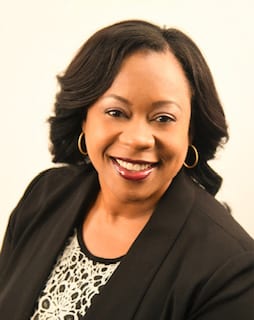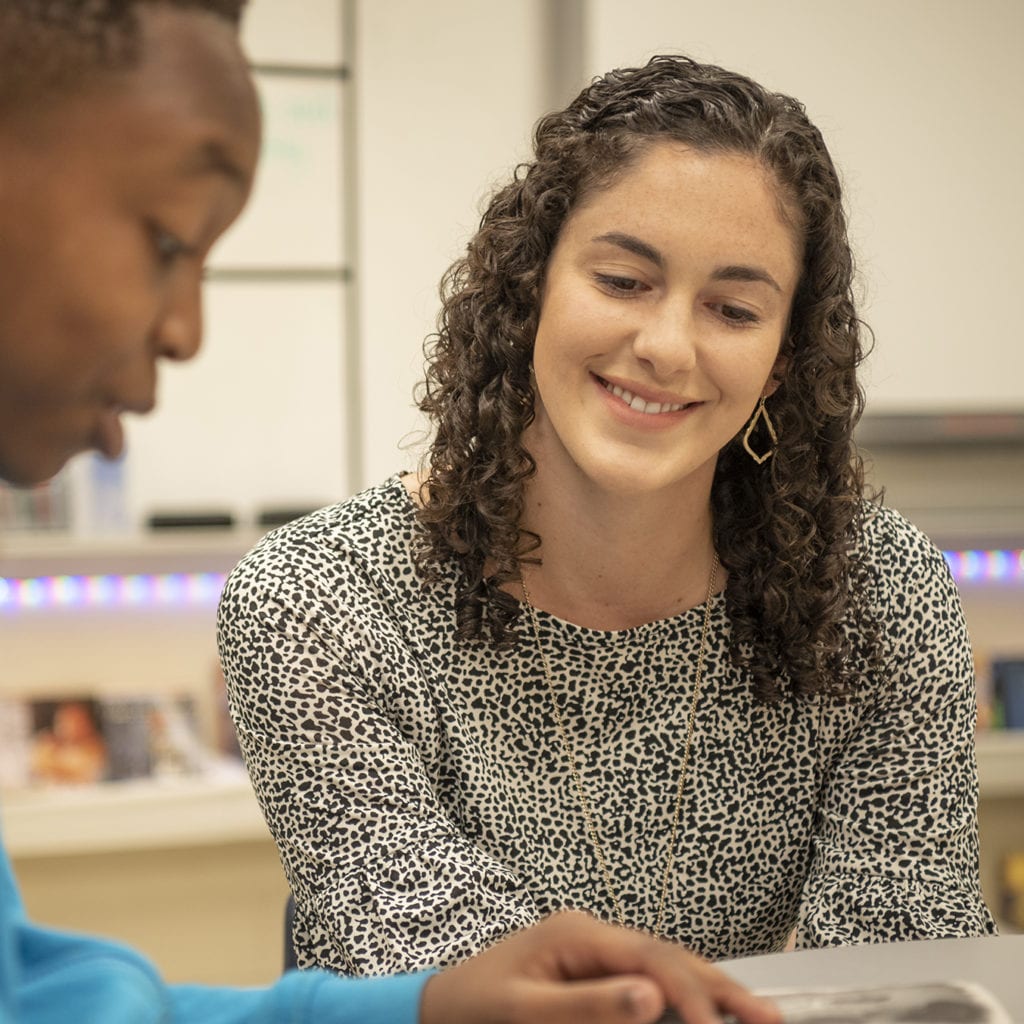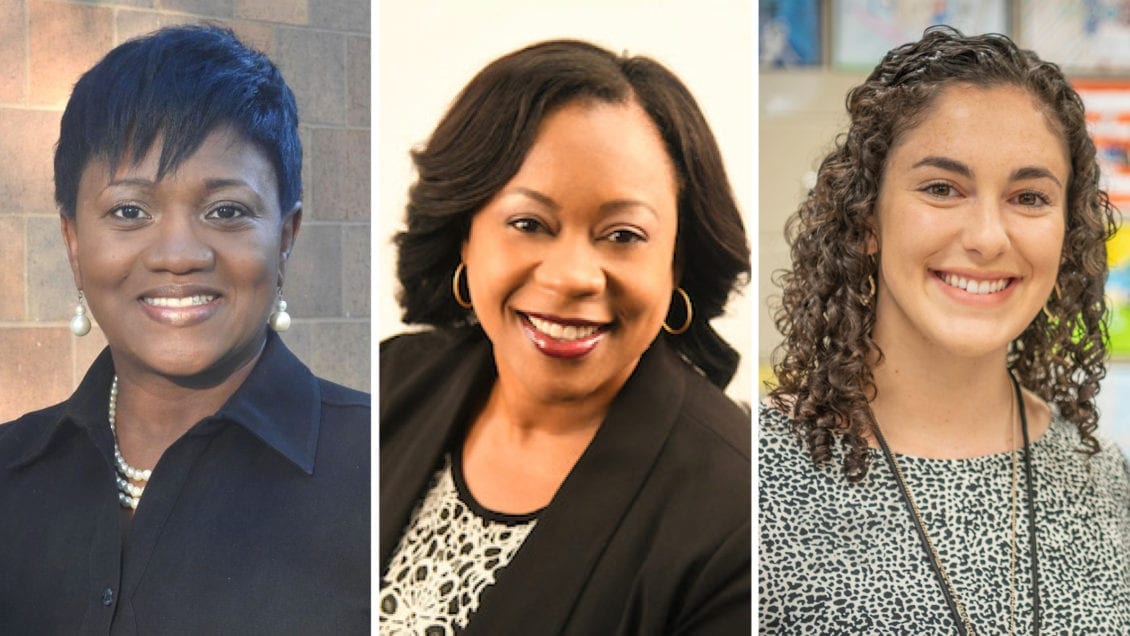The U.S. observes Women’s History Month as a way to commemorate and encourage the study, observance and celebration of the vital role of women in American history.
After the mid 1800s, the makeup of teaching profession began to shift from a predominantly male career to female, and today over three quarters of educators in primary school settings are women. The impact that women have had on the course of our nation in the last 200 years through the ripple effect that each teacher has through their students is unfathomable.
Alumni of the Clemson University College of Education go on to influence individuals, families and communities through their work at various levels of the education system. They don’t just do it in the classroom, but through leadership positions in school administration and in positions that allow them to shape policy in schools, districts or across the state.
This month, we celebrate female educators among our alumni by highlighting a few outstanding women in various positions and stages of their careers who share one common goal: to improve and enrich the lives of South Carolina through education.
Charlotte McDavid
As a three-time graduate of Clemson University, Charlotte “Cynthia” McLeod-McDavid has a long history with the College of Education. McLeod-McDavid earned a Ph.D., master’s degree and bachelor’s degree from the college. Ever since she started her teaching career with Anderson School District One in 1993, McLeod-McDavid has followed her guiding principle to help to build equality for historically underrepresented populations.

While at Palmetto Middle, she helped the school achieve the 2000 Award of Excellence for “Ensuring Success for All Students,” pioneering programs for students living in poverty and those with disabilities. As principal and district title I coordinator, she helped Pelzer Elementary School team move beyond the limitations of being a high-poverty school and earn two recognitions: Strong Communities Champions for Children and the Palmetto Silver Award for academic achievement and closing the achievement gap. Under her leadership, 100% of students met or exceeded South Carolina standards in multiple categories over four consecutive years.
Applying theory to practice became a passion, so McLeod-McDavid returned to Clemson University as an adjunct professor, teaching everything from philosophy to finance and facilities. She has returned to the College of Education each semester to recruit and place over 450 students annually to serve as tutors in Anderson School District One.
McLeod-McDavid later expanded her service to reach more students as assistant superintendent of Anderson School District Four. In 2017, McLeod-McDavid joined the executive leadership team of Greenville County Schools, the 46th largest school district in the country.
“As a first-generation college graduate, my family has played a vital role in my vision, purpose and aspirations,” McLeod-McDavid said. “At Clemson, I found others who served as my surrogate family. Greenville County Schools continues to building amazing connections with Clemson, and I am proud to be a part of them.”
At Greenville County Schools, McLeod-McDavid leads academic innovation and technology initiatives and other innovative programs such as the K-12 Virtual Program, New Tech Network project-based learning models, and Roper Mountain Science Center. She also directly supports students of poverty (Title I), English Speakers of Other Languages (Title III), and alternative programs.
In this way, her mission to create a vanguard for equality through education continues. She persists in learning more about supporting diversity as Furman University Diversity Leadership Institute Fellow and a graduate of its Women’s Leadership Institute.
“I seek out positions to support under resourced, underrepresented populations,” McLeod-McDavid said. “I’ve been happy in every role I’ve served and as I’ve matured, I recognize that it’s not about my paycheck. I see many opportunities, but if I don’t feel a special pull in my heart, I don’t pursue them.”
McLeod-McDavid is a proud alumna of a Rosenwald School, a product of a national effort for expanding school equality founded by Booker T. Washington of the Tuskegee Institute, and Julius Rosenwald, a philanthropist and former president of Sears Roebuck.
McLeod-McDavid graduated from Darlington County Public Schools in 1989, a district that fully desegregated after 1996. As the African American senior with the highest grade-point average in her high school graduating class, she was awarded a full scholarship to attend Clemson University. In addition to being on the Dean’s List and President’s List, Charlotte was recognized as a Black Student of Promise, Harvey B. Gannt Scholar, and Clemson Scholar.
McLeod-McDavid lives in Piedmont, South Carolina, with her husband, Anthony McDavid, and their son Avery. She is a member of Alpha Kappa Alpha Sorority, King David Baptist Church and numerous professional organizations.
Natasha Harvin-Wright
Natasha Harvin-Wright is a part of the initial cohort in the college’s Ed.D. in education systems improvement science and has worked in education for 20 years. Since starting the program, she has become director of human resources for the Berkeley County School District.

Harvin-Wright said she chose the Ed.D. program because of how it was geared toward solving actual problems — not theoretical ones — in South Carolina schools. She said solving real problems in schools should be more of a priority across the state, and she looks forward to doing her part in Berkeley County.
“Growing up in rural South Carolina, my teachers helped me shape future goals and define possibilities beyond my reality. I recognize that many students in South Carolina face a variety of limitations that create obstacles to advancement in their lives,” Harvin-Wright said. “That’s why this program spoke to me on a professional and personal level. The way we solve many problems in this state and improve people’s lives is through education.”
In her role, Harvin-Wright works with new teachers with five or less years of experience, and this group is statistically the most likely to exit the profession. Around 40 percent of new teachers leave the profession between years one and five, which is a big reason for teacher shortages in the state.
Harvin-Wright is currently focusing her dissertation on teacher self-efficacy and the effect of focusing school efforts on increasing confidence and support through sustained personalized professional development for new teachers. She has tested interventions and improvement strategies that can better translate to classrooms, and she’s found her confidence improve as her school system confronts complicated issues around returning to classrooms during the COVID-19 pandemic.
“The skill set I’ve learned from this program is something I’ve used in planning and implementing changes around the pandemic,” Harvin-Wright said. “It’s become more apparent than ever that we’ve got to fully understand a problem before we start presenting solutions to it.”
Ellie Baker
Ellie Jameson Baker is one of the first graduates of the College of Education’s teacher residency program and currently teaches fifth grade at Hunt Meadows Elementary in Easley, S.C. Baker is now in her second year as a teacher, and she said she loves working at Hunt Meadows and more generally for Anderson School District One, which she said has provided support, mentorship and encouragement during her first years in the classroom.
However, Baker also credits the College of Education and specifically the teacher residency program for how well prepared she was when she entered the classroom. The program replaces student teaching in a student’s final undergraduate semester with graduate education classes, and the following year is comprised of a year-round teacher residency with an experienced teacher who continuously gathers data about a resident’s progress. Residents such as Baker emerge after five years with this extended experience as well as a bachelor’s and master’s degree in education.

“Being a first-year teacher last year was difficult because there were so many ‘firsts,’” Baker said, “but I think my residency year prepared me for these challenges, gave me confidence and a wonderful mentor, Brandi Shepherd. She taught me how to form positive relationships with students while developing engaging lessons. We must expect all students to learn and perform at a high level because they can do it with the right support.”
Baker, like all teachers, has had to also contend with a move to online learning and then new protocols and precautions due to COVID-19. She has been continually impressed with how her students have met these challenges with her, and they’ve worked together to create lessons that she knows they’ll buy into, such as teaching math and decimals by delivering checks after pretend meals at a COVID-friendly “Decimal Diner.”
Due to COVID-19 curve balls and her wedding last summer, Baker has had zero opportunities to revisit Clemson, although she’s been thrilled to see how later teacher residents have succeeded and adapted during COVID-19. She also looks forward to one day getting the opportunity to mentor her own teacher resident as part of the program.
“If it weren’t for the Clemson job fair, I wouldn’t have my job in the district, so Clemson prepared me to teach and allowed me to find a great place to work,” Baker said. “I can’t wait to get enough years of experience under my belt so I can have my own student or practicum teacher from Clemson. I am very eager to give back to Clemson for all it has given me!”
Get in touch and we will connect you with the author or another expert.
Or email us at news@clemson.edu

